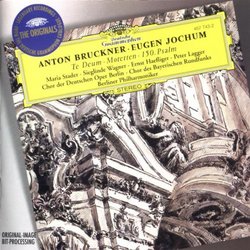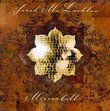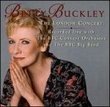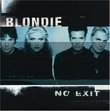| All Artists: Anton Bruckner, Eugen Jochum, Berlin Philharmonic Chorus, Maria Stader, Ernst Haefliger, Richard Holm Title: Bruckner: Te Deum, Motets, Psalm 150 / Jochum, Berlin Philharmonic Orchestra Members Wishing: 0 Total Copies: 0 Label: Dg Imports Release Date: 6/15/1999 Album Type: Import Genre: Classical Styles: Opera & Classical Vocal, Chamber Music, Symphonies Number of Discs: 1 SwapaCD Credits: 1 UPC: 028945774329 |
Search - Anton Bruckner, Eugen Jochum, Berlin Philharmonic Chorus :: Bruckner: Te Deum, Motets, Psalm 150 / Jochum, Berlin Philharmonic Orchestra
 | Anton Bruckner, Eugen Jochum, Berlin Philharmonic Chorus Bruckner: Te Deum, Motets, Psalm 150 / Jochum, Berlin Philharmonic Orchestra Genre: Classical
|
Larger Image |
CD DetailsSimilarly Requested CDs
|
CD ReviewsExcellent performance but start with Bruckner's masses Eytan Klausner | Chicagoland area | 06/13/2000 (4 out of 5 stars) "The mystical and original sacred music of Anton Bruckner is best conveyed by bruckner authority Eugen Jochum. While the Te deum and 150.psalm are almost as good as his three masses (available as an outstanding two CD in DG's series the originals - legendary recordings, again conducted by Jochum), the motets are much less powerful and less imaginative. I omitted the star for the quality of the music and not the performance. If you want to listen to Bruckner's sacred works, start with the mentioned CD of masses which like this CD features the great soprano Maria Stader." THE OTHER SIDE OF BRUCKNER DAVID BRYSON | Glossop Derbyshire England | 10/03/2005 (5 out of 5 stars) "Jochum was a prominent advocate of Bruckner, and whether or not there are other available versions of this sacred music I imagine he and his Berlin choir and orchestra will be the first port of call both for committed Brucknerians and for the rest of us. 7 of the 15 pieces here were recorded between 1966 and 1971. The dates of the others, including the final Psalm 150 in which the recording shows a few signs of strain, we are not told. I found this a fascinating selection. The Te Deum is, I suppose, fairly familiar, the remaining pieces may be familiar to some. If you have good enough French, I recommend strongly reading the original text of the liner-note in that language. What startled me sufficiently to read it for myself was the statement in the English version regarding the motets that 'Their very structure places them all firmly in the tradition of Palestrina'. In fact all that the author says is that they tend towards the Palestrina model, which is a perfectly reasonable thing to say. He emphatically does not say 'all', he does not place anything firmly anywhere, and he does not commit himself to the belief that Palestrina wrote for the trombone. His point is simply that these motets are traditional rather than contemporary and romantic in inspiration, looking back to the unaccompanied polyphonic style of the 16th and 15th centuries via the ecclesiastical style of a later generation in which the voices were accompanied by trombones and by the organ. Bruckner's motets have little or nothing in common with Brahms's. In Bruckner's motets the Catholic in him gets the better of the German in him, whereas in his symphonies he is as exclusively German in manner as Brahms himself is, the Bach-inspired motets very much included. Bruckner's are smaller efforts, intended for actual performance in church I would feel sure, although I wish the liner had had something to say about this. The Berlin Phil is there in all its magnificence in the 150th Psalm (although the recorded sound here is rather less magnificent) and in the Te Deum itself. This is not a large-scale setting like Berlioz's or like Handel's terrific Dettingen Te Deum. It is about as long as Verdi's, although not in my opinion anywhere near as good. The parts for the vocal soloists are fairly small, and they acquit themselves perfectly, the choir is predictably first class, and my only real complaint is about a rather meagre-sounding solo violin in the Psalm, this being of course quite possibly the fault of the recording. I did not check the translations systematically, and the only misprint I noticed in the Latin was 'et' for 'est' in the fourth line of the Vexilla Regis. Bruckner does not set the full text of the Pange lingua, but he does set the final two stanzas, the dreaded Tantum ergo familiar from some of our schooldays, set at times to some of the worst music in the entire cosmos. What I don't understand is what is wrong with a literal translation of 'cernui'. This is not 'on our knees' nor is it 'le front courbe', but literally 'prostrate'. Nor do I understand why the poet's metaphor of 'patibulo' in the Vexilla Regis has to be given as 'Cross' in English. That is what is referred to of course, but why not keep the metaphor in the English translation as in the German and French? This sort of music appeals to me, partly from curiosity of course. It doesn't tempt the composer to excessive length, and I have to say that that appeals to me too. I recommend it to enthusiasts for his symphonies who may not know it, because it shows a side of him that is as true a part of his personality as those are. The recording is in general very good, despite some reservations about the last item, and the performances are authenticity itself." Fantastic!....mostly Daniel M. Forman | San Francisco, CA United States | 02/02/2003 (4 out of 5 stars) "These choral works are, in my opinion, some of the most beautiful pieces ever written. Bar none. They represent, to me, all that a choir can ever hope to be, magnificently displayed.
I have only two criticisms: First, the trombones which accompany two of the motets are truly pitiful. They are inconsistent in their entrances, use WAY too much, and too wide, vibrato, and (under the circumstances, fortunately) are usually either drowned out by the organ or the choir. Second, the orchestra is a little bit bombastic. I would prefer a more subtle and graceful interpretation. This may be in conflict with current accepted Bruckneran performance conventions, but I would remind those who set, agree with, or practice these conventions that Bruckner was a deeply religious, thoughtful, and subtle man. His Ave Maria (which I firmly believe to be the single most beautiful, holy, and perfect piece of choral music in existence, and which is proof of God's existence if anything is [however, that's a big if]) proves that much. The Choir is GREAT, the soloists are great, the music's great. Great Disc, but not perfect. (What is?) Go on. Get it. You know you want to." |

 Track Listings (16) - Disc #1
Track Listings (16) - Disc #1








